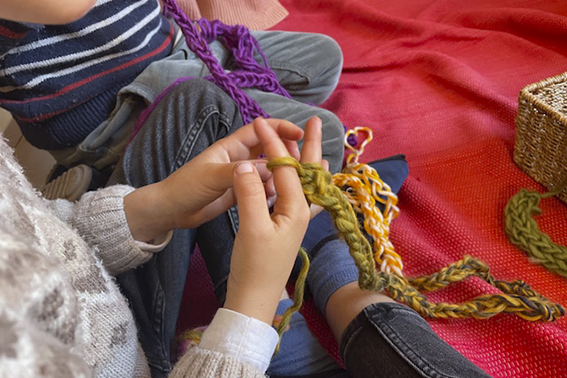From a pedagogical point of view, manual work and finger agility facilitate flexible thinking as well as understanding and tolerance towards complex life situations.
The rhythmic and repetitive activity of knitting is calming and makes us enter a meditative state. Children keep the needles in both hands, assigning each hand its respective activity, establishing laterality and achieving a degree of control over their will from the beginning.
The power of concentration is transformed into awakening; in fact, there is no other activity carried out by six and seven-year-old boys and girls that can generate this level of attention. All of this helps concentration, strengthening “the will to learn to think”. This skill is what will allow you to achieve problem-solving ability in later years.
Recent neurological research confirms that mobility and fine motor skills, especially in the hand, stimulate cellular development in the brain and reinforce the foundation physics of thinking.
Thanks to their skill with needles and sheep wool, they are making knitted animals and the case of his flute.


